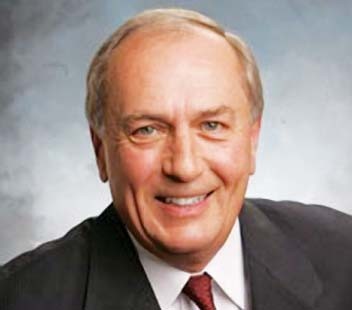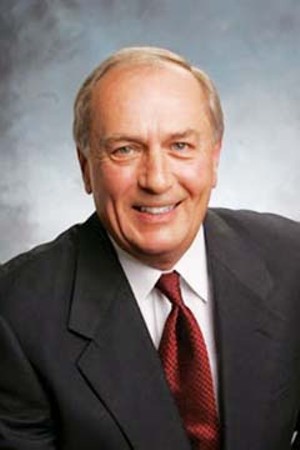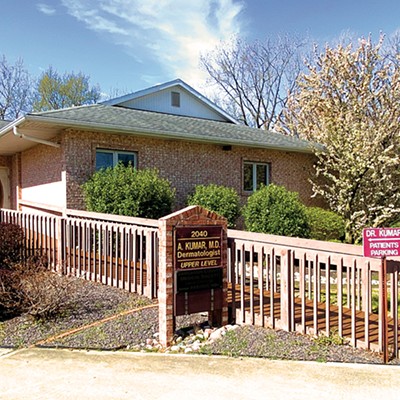Shakeup in juvenile justice
Director resigns, union and advocates call for reform of failing system

[
{
"name": "Air - MedRect Combo - Inline Content 1",
"component": "11490391",
"insertPoint": "3",
"requiredCountToDisplay": "1",
"parentWrapperClass": "fdn-ads-inline-content-block"
},{
"name": "Air - MedRect Combo - Inline Content 2",
"component": "11490392",
"insertPoint": "7",
"requiredCountToDisplay": "5",
"parentWrapperClass": "fdn-ads-inline-content-block"
},{
"name": "Air - MedRect Combo - Inline Content 3",
"component": "11490393",
"insertPoint": "12",
"requiredCountToDisplay": "9",
"parentWrapperClass": "fdn-ads-inline-content-block"
}
]
Three weeks after the director of the Illinois Department of Juvenile Justice announced his resignation, two different studies are calling for major changes in the troubled agency’s operations.
Kurt Friedenauer announced his resignation as IDJJ director on July 14, having served in that position since the department’s creation in 2006. Friedenauer oversaw IDJJ’s slow separation from the adult-oriented Department of Corrections and the beginnings of a merger with the Department of Children and Family Services, but persistent recidivism and bouts of violence called into question the IDJJ’s effectiveness during his tenure. [See “Kids in prison,” April 29, at www.illinoistimes.com.]
The American Federation of State, County and Municipal Employees Local 31, which represents state employees such as those at IDJJ, blasted the merger with DCFS last week, calling it a “bureaucratic solution to a programmatic problem.”
“There is widespread agreement that the current juvenile justice system is not fulfilling its mission of reducing the recidivism rate of juvenile offenders,” AFSCME says in a report released July 27. “But the merger appears likely to merely replicate the mistakes of the past, offering only cosmetic change when what is required is a serious commitment of new resources to revitalize the programs essential to ensure that youth have the opportunity to rebuild their lives and to make the facilities safe.”
The juvenile justice system was never given a chance to succeed, AFSCME says, pointing to a “woefully inadequate” budget, inadequate staff, lack of training and teacher levels that hover below state standards. The union surveyed 239 members who work in the juvenile justice system and developed a list of reforms AFSCME asserts could “reverse a nearly decade-long slide in juvenile justice outcomes in Illinois.”
Among the recommendations are larger staff numbers, more teachers and better staff training. IDJJ shouldn’t have to share parole officers with the Department of Corrections, AFSCME says, and treatment programs for substance abuse and mental health should be expanded.
“Yet another structural reorganization should not be allowed to substitute once again for meaningful reinvestment,” AFSCME says, “or for a true and productive partnership between the administration of the juvenile justice system and the frontline employees … who are striving to bring about the safe and successful rehabilitation of young offenders in Illinois.”
Two days after the AFSCME report, Illinois Models for Change released a report on behavioral health in IDJJ, calling for better mental health assessments in youth prisons. The report says existing assessments aren’t adequate, and often aren’t incorporated into juvenile inmates’ treatment plans, while staffing levels and training are a critical issue.
“In many facilities the current caseloads of youth and family specialists and mental health professionals are unmanageable and do not allow for meaningful monitoring, treatment or provision of vital case management functions,” the IMC report states. That report was in response to a request for technical assistance from IDJJ.
Meanwhile, Quinn seems to be pushing ahead with the merger, creating “interagency workgroups” to study the benefits and impacts of joining the two agencies. He recently signed legislation allowing IDJJ and DCFS to share resources, and on July 16, Quinn appointed Arthur Bishop, who currently serves as deputy director of field operations for DCFS, to take over IDJJ and oversee the DCFS-IDJJ merger. Friedenauer was scheduled to leave July 31.
“This merger will ensure that at-risk youth have access to the services and support they need to become positive, productive members of society and move IDJJ to a child welfare-based system,” Quinn said in a public statement.
IDJJ holds approximately 1,500 youth offenders between ages 13 and 20 in eight youth prisons across the state.
Contact Patrick Yeagle at [email protected].
Kurt Friedenauer announced his resignation as IDJJ director on July 14, having served in that position since the department’s creation in 2006. Friedenauer oversaw IDJJ’s slow separation from the adult-oriented Department of Corrections and the beginnings of a merger with the Department of Children and Family Services, but persistent recidivism and bouts of violence called into question the IDJJ’s effectiveness during his tenure. [See “Kids in prison,” April 29, at www.illinoistimes.com.]
The American Federation of State, County and Municipal Employees Local 31, which represents state employees such as those at IDJJ, blasted the merger with DCFS last week, calling it a “bureaucratic solution to a programmatic problem.”
“There is widespread agreement that the current juvenile justice system is not fulfilling its mission of reducing the recidivism rate of juvenile offenders,” AFSCME says in a report released July 27. “But the merger appears likely to merely replicate the mistakes of the past, offering only cosmetic change when what is required is a serious commitment of new resources to revitalize the programs essential to ensure that youth have the opportunity to rebuild their lives and to make the facilities safe.”
The juvenile justice system was never given a chance to succeed, AFSCME says, pointing to a “woefully inadequate” budget, inadequate staff, lack of training and teacher levels that hover below state standards. The union surveyed 239 members who work in the juvenile justice system and developed a list of reforms AFSCME asserts could “reverse a nearly decade-long slide in juvenile justice outcomes in Illinois.”
Among the recommendations are larger staff numbers, more teachers and better staff training. IDJJ shouldn’t have to share parole officers with the Department of Corrections, AFSCME says, and treatment programs for substance abuse and mental health should be expanded.
“Yet another structural reorganization should not be allowed to substitute once again for meaningful reinvestment,” AFSCME says, “or for a true and productive partnership between the administration of the juvenile justice system and the frontline employees … who are striving to bring about the safe and successful rehabilitation of young offenders in Illinois.”
Two days after the AFSCME report, Illinois Models for Change released a report on behavioral health in IDJJ, calling for better mental health assessments in youth prisons. The report says existing assessments aren’t adequate, and often aren’t incorporated into juvenile inmates’ treatment plans, while staffing levels and training are a critical issue.
“In many facilities the current caseloads of youth and family specialists and mental health professionals are unmanageable and do not allow for meaningful monitoring, treatment or provision of vital case management functions,” the IMC report states. That report was in response to a request for technical assistance from IDJJ.
Meanwhile, Quinn seems to be pushing ahead with the merger, creating “interagency workgroups” to study the benefits and impacts of joining the two agencies. He recently signed legislation allowing IDJJ and DCFS to share resources, and on July 16, Quinn appointed Arthur Bishop, who currently serves as deputy director of field operations for DCFS, to take over IDJJ and oversee the DCFS-IDJJ merger. Friedenauer was scheduled to leave July 31.
“This merger will ensure that at-risk youth have access to the services and support they need to become positive, productive members of society and move IDJJ to a child welfare-based system,” Quinn said in a public statement.
IDJJ holds approximately 1,500 youth offenders between ages 13 and 20 in eight youth prisons across the state.
Contact Patrick Yeagle at [email protected].
Illinois Times has provided readers with independent journalism for almost 50 years, from news and politics to arts and culture.
Your support will help cover the costs of editorial content published each week. Without local news organizations, we would be less informed about the issues that affect our community..
Got something to say?
Send a letter to the editor and we'll publish your feedback in print!





















